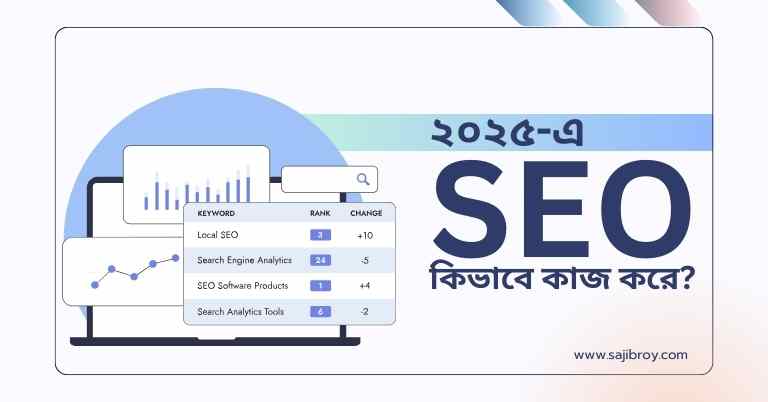Starting your SEO campaign with strategy development is crucial for success in improving your website’s visibility and driving organic traffic. It sets the foundation for effective optimization by identifying target keywords, analyzing competition, and creating a roadmap for achieving your SEO goals.
Through strategic planning, you can ensure that your SEO efforts are focused and aligned with your overall business objectives. A well-crafted strategy also lets you track progress, measure results, and make data-driven adjustments to optimize your website’s performance on search engine result pages.
Developing an SEO strategy upfront will save you time, effort, and resources in the long run, ultimately leading to better rankings, increased traffic, and higher conversions.
Let's See the Topic Overview
On-Page Optimization
When it comes to SEO, on-page optimization plays a crucial role in determining the success of your campaign. On-page optimization refers to the strategies and tactics implemented directly on your website to improve its visibility and ranking on search engine result pages (SERPs). This includes various elements such as keyword research and placement, meta tags and descriptions, URL structure optimization, and internal linking.
Keyword Research and Placement
Keyword research is the foundation of any successful SEO strategy. It involves identifying the relevant keywords and phrases that your target audience is using to search for products or services similar to yours. Once you have identified your keywords, you need to strategically place them throughout your website. This includes optimizing your page titles, headings, content, image alt tags, and URL slugs to incorporate your target keywords. By doing so, search engines can better understand the relevance and subject matter of your website, ultimately leading to higher search rankings.
Meta Tags and Descriptions
Meta tags and descriptions provide search engines with a brief summary of your webpage’s content. They do not appear on the actual webpage but are crucial in determining whether a user should click on your listing in the SERPs. It is important to optimize your meta tags and descriptions by including relevant keywords and compelling copy that entices users to click through to your website. Additionally, your meta tags should be unique and descriptive, accurately reflecting the content of each specific webpage.
URL Structure Optimization
The structure of your website’s URLs can impact its visibility and ranking on search engines. Optimized URLs should be concise, descriptive, and include relevant keywords. A clear URL structure makes it easier for search engines to understand the organization of your website’s content and helps users navigate through your site intuitively. For example, instead of using a generic URL like “www.example.com/productid=1234,” it is better to use a concise and descriptive URL such as “www.example.com/product-name.”
Internal Linking
Internal linking refers to the practice of linking one page of your website to another within the same domain. Internal links help search engines navigate and understand the relationship between different pages on your site, leading to better indexing and ranking. When implementing internal links, it is important to use relevant anchor text that includes keywords related to the target page. This not only helps with SEO but also improves the overall user experience by guiding visitors to relevant content within your website.
Off-Page Optimization
Building High-Quality Backlinks
When it comes to off-page optimization, one of the most crucial aspects is building high-quality backlinks. Backlinks serve as a vote of confidence from other websites, indicating to search engines that your website is trustworthy and relevant. However, not all backlinks are created equal. It’s important to focus on acquiring backlinks from reputable and authoritative websites in your industry.
One way to build high-quality backlinks is through guest blogging. By reaching out to authoritative websites and offering to write informative and engaging content for their audience, you can secure a valuable backlink back to your own website. Additionally, participating in industry forums and leaving insightful comments on relevant blog posts can also help you acquire backlinks.
However, it’s important to note that quality should always be prioritized over quantity when it comes to building backlinks. A few high-quality backlinks from reputable sources can have a greater impact on your SEO than a multitude of low-quality links.
Social Media Engagement
In today’s digital age, social media has become an integral part of our daily lives. From connecting with friends and family to discovering new businesses and products, social media platforms offer endless opportunities for engagement. As a result, leveraging social media engagement as part of your off-page optimization strategy is essential.
Social media provides a platform for you to share your website’s content with a wider audience. By creating valuable and shareable content that resonates with your target audience, you can increase the chances of your content being shared and potentially going viral. This, in turn, can drive more traffic to your website and improve your search engine rankings.
Engaging with your audience on social media is also crucial. Responding to comments, answering questions, and actively participating in conversations related to your industry can help you build a loyal following and establish your authority in your niche.
Influencer Marketing
Influencer marketing has gained significant traction in recent years, and for good reason. Collaborating with influential individuals in your industry can help you reach a wider audience and increase your brand visibility. When an influencer mentions your website or shares your content with their followers, it can significantly boost your website’s credibility and generate valuable backlinks.
When considering influencer marketing as part of your off-page optimization strategy, it’s important to choose influencers who align with your brand values and have a genuine connection with their audience. Working with influencers who have a genuine interest in your industry can lead to more authentic and engaging collaborations.
Remember, off-page optimization is an ongoing process that requires consistent effort and strategy. By focusing on building high-quality backlinks, engaging with your audience on social media, and leveraging influencer marketing, you can enhance your SEO efforts and improve your website’s visibility in search engine results.
Technical SEO
When it comes to implementing a successful SEO campaign, a solid strategy is vital. One crucial aspect of this strategy is Technical SEO, which focuses on the technical aspects of a website that contribute to its visibility in search engine rankings. By optimizing technical elements such as crawlability, indexability, website speed, and mobile optimization, you can lay a strong foundation for improving your website’s search engine performance. Let’s delve into the various components of Technical SEO, starting with two important elements: Crawlability and Indexability.
Crawlability and Indexability
In order for search engines to understand and rank your website effectively, it’s crucial that they can crawl and index its pages easily. Crawlability refers to the search engine’s ability to navigate and access the content on your website. Indexability, on the other hand, refers to the inclusion of your website’s pages in search engine indexes. Both these factors play a significant role in determining how search engines perceive and rank your website.
To ensure maximum crawlability and indexability, you should:
- Create a sitemap.xml file that lists all the relevant pages and information about your website. This helps search engines understand the structure of your site and easily crawl its content.
- Use a robots.txt file to instruct search engines on which pages to crawl and which to exclude. This allows you to selectively control the visibility of specific pages or sections of your site.
- Optimize your website’s internal linking structure to ensure that search engine crawlers can navigate through your site efficiently. This includes creating clear and logical navigation menus, using descriptive anchor text, and interlinking relevant pages.
- Fix any crawl errors or broken links that may hinder search engine crawlers from accessing your website’s pages. These errors can negatively impact your site’s visibility and should be addressed promptly.
Website Speed and Mobile Optimization
In today’s fast-paced world, website speed has become increasingly important. A slow-loading website not only frustrates users but also negatively impacts your SEO efforts. Search engines prioritize websites that provide a smooth and fast user experience. Therefore, optimizing your site’s speed is crucial for higher search engine rankings.
Additionally, with the rise of mobile device usage, mobile optimization has become paramount. A website that is not mobile-friendly may rank lower on search engine results pages, as search engines prioritize websites that provide a seamless experience across all devices.
To improve your website speed and mobile optimization, consider:
- Compressing images and minifying your CSS and JavaScript files to reduce file sizes and improve loading times.
- Enabling browser caching to store static files locally on the user’s device, reducing the need to fetch them from the server with each page visit.
- Using a responsive web design that adjusts and adapts to different screen sizes, ensuring optimal viewing and navigation on both desktop and mobile devices.
- Regularly testing your website’s speed using tools like Google PageSpeed Insights or GTmetrix, and making necessary optimizations based on the insights provided.
Structured Data Markup
Structured Data Markup, also known as schema markup, is a way to provide search engines with additional context about the content on your website. By implementing structured data markup, you can enhance how search engines interpret and display your website’s information in search results.
Using custom HTML tags and attributes, structured data markup allows you to label specific elements on your website, such as product reviews, recipes, events, or articles. This helps search engines understand the purpose and relevance of your content, potentially leading to enhanced search engine visibility and click-through rates.
Implementing structured data markup involves:
- Identifying the most relevant schema markup for your website’s content. This can be done by referring to the Schema.org website and deciding which schema types align with your content.
- Adding the appropriate schema markup directly to your website’s HTML code. This can be done manually or by using plugins or tools that generate the necessary code for you.
- Testing your structured data markup using Google’s Structured Data Testing Tool to ensure proper implementation and troubleshoot any errors or warnings.
By focusing on these Technical SEO aspects, you can set a solid foundation for your SEO campaign, ensuring your website is easily discoverable, fast-loading, and optimized for both desktop and mobile devices. Implementing these strategies will not only improve your website’s visibility but also enhance the overall user experience and increase your chances of attracting and retaining organic traffic.
Tracking And Measuring Success
The success of an SEO campaign lies in its ability to track and measure the results. Tracking and measuring success allows you to understand the effectiveness of your strategies and make necessary adjustments for continuous improvement. There are several important aspects to consider when tracking and measuring SEO success, including analytics and conversion tracking, key performance indicators (KPIs), and adjusting strategies for ongoing improvement.
Analytics and Conversion Tracking
Analytics plays a crucial role in tracking the success of your SEO campaign. By analyzing website traffic, user behavior, and other metrics, you can gain valuable insights into how your website is performing. Tools such as Google Analytics provide detailed data on website visitors, including demographics, traffic sources, and engagement metrics. This information helps you identify areas for improvement and take proactive steps to optimize your website for better performance.
Conversion tracking is equally important. It allows you to measure how effectively your SEO efforts are converting visitors into customers or subscribers. By setting up conversion goals and using tracking codes, you can monitor the conversion rate, track specific actions such as purchases or form submissions, and determine the impact of your SEO strategies on your bottom line.
Key Performance Indicators (KPIs)
Key Performance Indicators (KPIs) provide measurable objectives that reflect the success of your SEO campaign. These indicators can vary depending on your business goals and objectives. Examples of common KPIs include organic traffic growth, rankings for target keywords, bounce rate, average session duration, and conversion rate. By regularly monitoring these KPIs, you can gauge the effectiveness of your SEO strategies and make data-driven decisions to improve your campaign’s performance.
Adjusting Strategies for Continuous Improvement
Tracking and measuring success is not just about obtaining data; it’s about using that data to drive continuous improvement. By analyzing the results and identifying areas where your strategies are falling short, you can make the necessary adjustments to optimize your SEO campaign. This might include refining keyword targeting, improving website usability, or enhancing content quality. Regularly reviewing your analytics and conversion tracking data allows you to stay agile and adapt your strategies to achieve better results over time.
Conclusion
A well-planned strategy development is the foundation for a successful SEO campaign. Understanding the importance of strategy allows businesses to optimize their digital presence and achieve their desired results. By conducting thorough keyword research, performing a comprehensive website audit, and analyzing the competitive landscape, a strategic approach can be crafted to guide the SEO efforts.
This allows businesses to target the right audience, optimize their website for search engines, and efficiently allocate resources. Moreover, a strategic approach ensures that SEO efforts align with overall business goals and objectives, resulting in long-term success and sustainable growth.
With competition on the rise and search engine algorithms constantly evolving, starting an SEO campaign with strategy development is crucial for businesses to stay ahead in the digital landscape. Simply put, a strategic approach sets the stage for improved visibility, increased organic traffic, and higher conversions, ultimately leading to business success.












